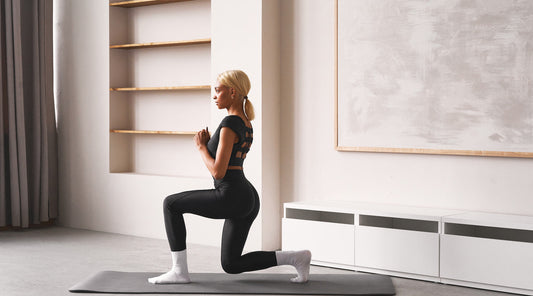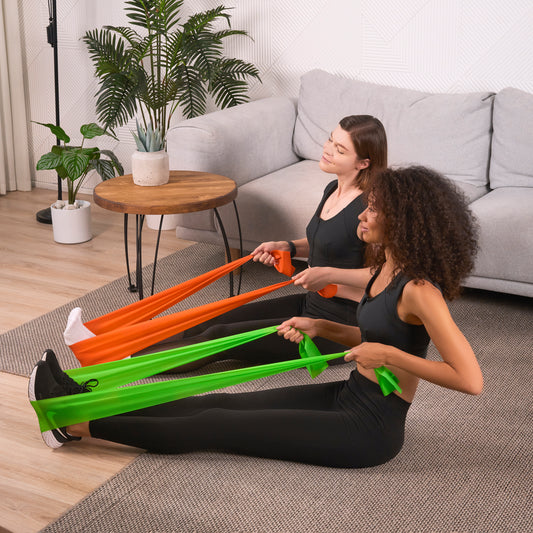No matter how hard you try to conceal your emotions, your posture could be giving you away. Feeling down? Your body will often show it. You may hang your head, round your shoulders, slump a little more than usual. And the more you slouch, the worse you may end up feeling. It’s a cycle that can be hard to shake yourself out of. Decrease in mood → decline in posture → worse mood → worse posture.
The connection between body posture and mood is certainly not a modern concept. Ancient thought viewed this idea through chakras. Energy is able to flow freely through these energetic centers when the body is balanced and aligned. When it’s not, energy is disrupted or blocked, causing physical and mental disturbances.
Since energy is hard to measure, modern science has sought more tangible proof. Researchers have found that there is indeed a strong link between posture and mental health, and that improvement in one often leads to improvement in the other.
Below, we dig into key research that reveals the influence of posture on mood. We also lay out some simple steps you can take to improve your posture and mental well-being.
The Impact of Bad Posture on Mental Health
Mental health has been declining worldwide — and so has posture. Coincidence? Many of the same factors are most likely contributing to both, technology being the big one, of course: mobile phone usage (see: tech neck), remote working, and other modern conveniences that allow for more sedentary lifestyles.
Poor posture has been linked to a variety of physical ailments, including:
- Increased risk of injury
- Neck and back pain
- Chronic headaches
- Digestive issues, including heartburn and bloating
- Muscular imbalances and muscle fatigue
- Decreased lung capacity
When you’re feeling physical pain, discomfort, or weakness, it’s going to inevitably affect you on a mental and emotional level. But the links between posture and anxiety, posture and stress, and posture and depression can be even more deep-rooted.
Here’s a rundown of some studies that have looked into the influence of posture on psychological health.
Poor Posture and Stress: The Vagus Nerve Connection
Your vagus nerve is a collection of nerves in your parasympathetic nervous system that controls crucial bodily functions like your heart rate, immune system, digestion, and fight-or-flight response. The vagus nerve runs from your brain, down through your neck, to your lung cavities and eventually intestines. Your vagal tone is a measure of how well your vagus nerve is functioning. It can be a gauge for how well your body can adapt to changes and stresses, both physical and psychological (1).
Notably, there’s a lot of nerve activity happening in the neck, where the vagus nerve divides into four different branches. A low vagal tone — which can be caused by poor posture — is more vulnerable to stress. A forward head posture, for example, can constrict these nerves and even cause dysfunction and damage in the neck, thus lowering your vagal tone. One common symptom of vagus nerve problems is anxiety. This means that one way to combat anxiety is to improve your posture.

Source: Caring Medical Florida
Bad Posture and Anxiety: The Evidence-Based Connection
The link between slouching and anxiety is well-supported. One study found that an upright seated posture could help build resilience to stress and anxiety. Among 74 participants, those who held an upright position reported higher self-esteem, better mood, and lower fear than their slumped companions (2).
Other researchers have concluded that our core muscles — which help to control our posture — have an impact on our adrenal glands, which is involved in our stress response via the release of cortisol. A stronger core and better posture can help lower cortisol levels and consequently reduce fatigue, stress, and anxiety (3).
For more research on posture and anxiety, check out our article on the psychological impact of poor posture.
Depression and Posture: How Poor Alignment Can Lower Your Mood
Slouching may not only project discomfort, anxiety, or sadness to the outside world, it also can affect the way you see yourself. A stooped posture is actually one criterion when diagnosing individuals experiencing a major depressive episode.
A 2023 systematic review of 23 studies concluded that people with depression tend to have a more slumped posture (4). But is it the depression that causes poor posture or the other way around? Both are likely true. This means you can have a direct effect on your mood by simply improving your posture.
Take one study, which found that individuals with mild to moderate depression experienced reduced fatigue and increased enthusiasm when asked to sit upright. They even became less self-focused (5). Many other studies have found that better posture can have an almost immediate impact on your mood, your confidence, and your cognitive performance (6).
Ways To Improve Your Posture for Better Mental Health
Poor posture is generally a bad habit, which means it can be reversed. You just need to be committed to the cause. Is the potential for improved mental clarity, reduced stress and anxiety, and enhanced mood enough reason to want to try? We think so!
Here are some simple posture habits to help you maintain good posture for both your physical and mental health.
Simple Posture Habits To Improve Mental Clarity and Reduce Anxiety
Start by practicing posture-friendly habits, including the following:
- Understand what good posture is and feels like. Learn how to properly sit and stand for good alignment. Get to know the characteristics of proper posture and practice this position daily.
- Take breaks. During long periods of sitting or standing, try to take a break at least every 30 minutes to move around, stretch, grab some water, take a few deep breaths, or do whatever helps you relax and refresh.
- Get moving. You don’t have to be a gym addict to move your body with purpose — you don’t even need to go to the gym. Begin by incorporating exercises and stretches that target key postural muscles around the shoulders, chest, core, and upper and lower back. Try these corrective exercises and these easy desk stretches to start.
- Wear a posture bra. A little extra help can go a long way. A comfortable and supportive posture corrector can help you maintain good posture throughout the day.
But not just any posture bra will do …
Using Etalon for Better Posture to Enhance Mood and Reduce Stress
The innovative, ergonomic design of Etalon targets the muscles in the upper body that impact (and are impacted by) posture. The posture bra is built with a supportive underband that offers maximum support and an adjustable straps system that gently pulls the shoulder blades closer together, opens your chest, and prevents slouching.

Better Your Posture, Better Your Mood
Improving your body’s alignment can cause a positive domino effect. Looking at this from various theories, better posture has the potential to unblock your chakras, increase your vagal tone, reduce your cortisol and stress levels, and boost your confidence and self-esteem.
Wearing a posture corrector like Etalon on a daily basis can help correct muscular imbalances due to poor posture and keep you in an upright position throughout the day. Better posture will lead to less pain and stress, more energy, increased lung capacity, enhanced productivity, and an overall more positive mood.
SOURCES:
1. Advances in Child Development and Behavior. “Vagal Tone.” (2021). https://www.sciencedirect.com/topics/biochemistry-genetics-and-molecular-biology/vagal-tone
2. Health Psychology. “Do slumped and upright postures affect stress responses?” (2015). https://pubmed.ncbi.nlm.nih.gov/25222091/
3. NPR. “Stressed out? It might not just be in your head. How your muscles affect your mood.” (2023). https://www.npr.org/2023/10/24/1200611637/how-posture-and-movement-impact-our-mood
4. Current Psychology. “Correlation between depression and posture (A systematic review).” (2023). https://link.springer.com/article/10.1007/s12144-023-04630-0
5. Journal of behavior therapy and experimental psychiatry. “Upright posture improves affect and fatigue in people with depressive symptoms.” (2016). https://pubmed.ncbi.nlm.nih.gov/27494342/
6. Acta Psychologica. “Embodiment: I sat, I felt, I performed – Posture effects on mood and cognitive performance.” (2021). https://www.sciencedirect.com/science/article/pii/S0001691821001037
FAQs
How does bad posture affect my mood?
Can good posture improve mental health?
What role does posture play in anxiety?
How can Etalon help with posture and stress relief?
What are simple ways to improve posture for better mood?
Trending
Try Etalon posture improvement products









